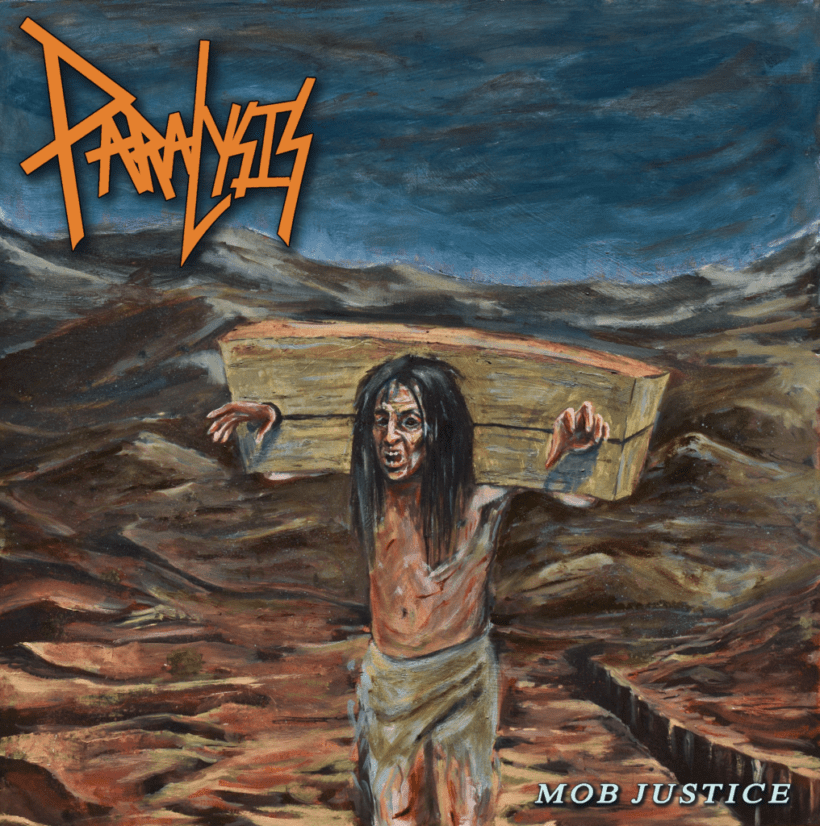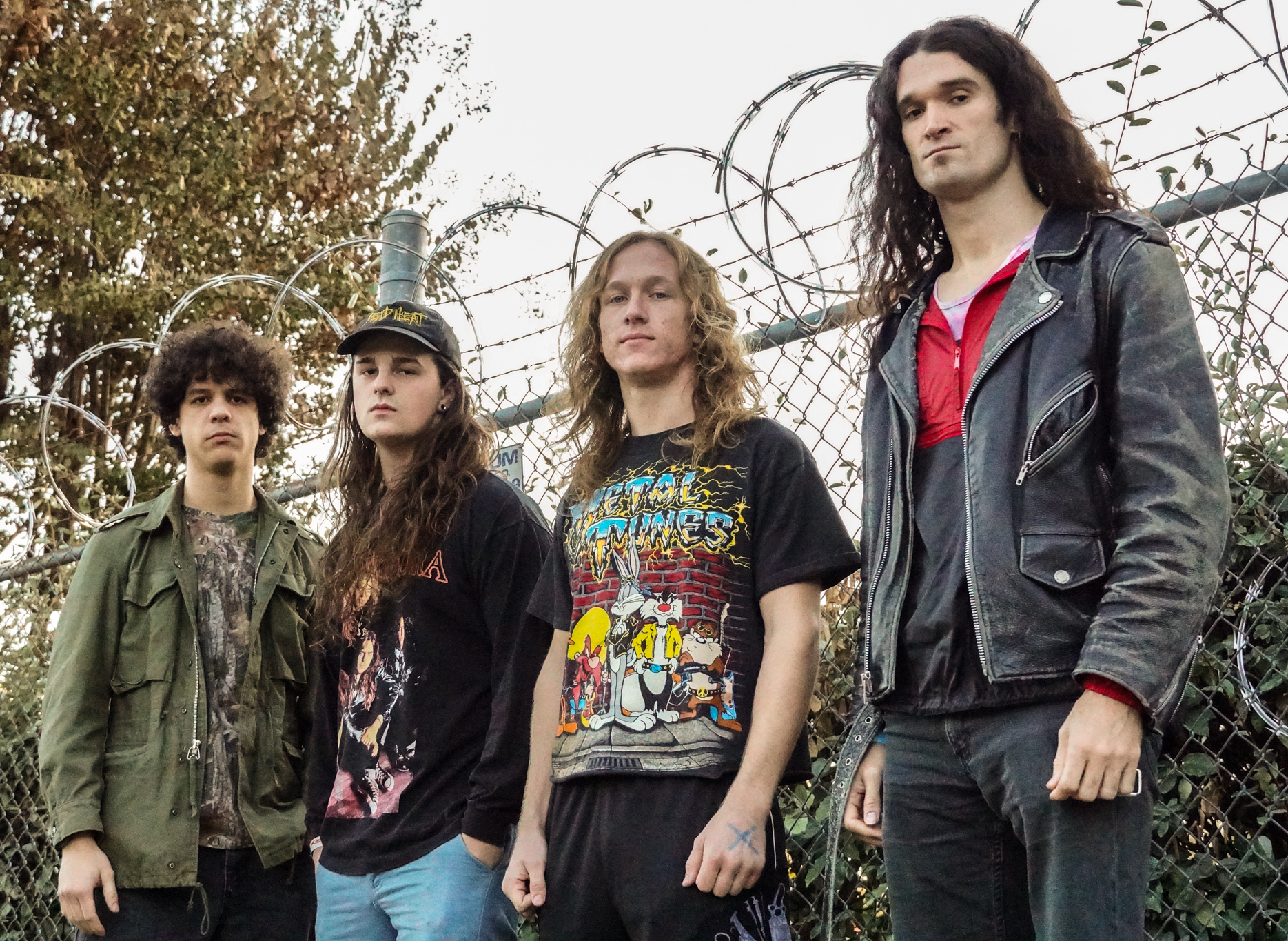
Thrash will never die; it just comes in waves. When the mid-2000s revival died down, it was only a matter of time before the genre returned, this time being led by crossover giants like Power Trip, who have dominated the metal and hardcore scene since 2013’s Manifest Decimation. Of course, Power Trip aren’t the only ones carrying the torch; groups like Red Death, Enforced and Primal Rite, to name a few, have continued to breathe new life into the genre over the last few years.
Enter Paralysis. The New Jersey thrashers have been grinding for a decade—doubly impressive when considering that bandleader, guitarist and vocalist Jon Plemenik is only 22—around the United States and even South America, but it’s with second album Mob Justice that the band comes into their own.
Mob Justice is a 10-track ass beater that fires off one riff after another, courtesy of Plemenik and lead guitarist Ron Iglesias (Toxik), plus the locked-in rhythm section of bassist Patrick Harte and drummer Samith Force. Plemenik’s short barks are a strong match for the chunky, staccato riffing that Paralysis employ throughout the record, but the band truly shine when they slow it down. It’s hard not to bang your head to the second half of “Oblivious” or the titular track, which were clearly conceived for maximum mosh pit chaos.
Decibel chatted with Harte about the crossover revival, the influence of the South American scene on Mob Justice and the political climate in the United States. You can stream the entirety of Mob Justice below and score a copy through the band.
It feels like a new thrash revival came about in the middle and end of the last decade, ushering in more crossover bands like Power Trip, Red Death, Breaking Wheel, Primal Rite, Mindforce and other bands of their ilk. Has the growing popularity of the genre affected the way that you write music or promote the band?
The recent popularity of the genre and the bands mentioned such as Power Trip, Red Death and Mindforce have been a big force behind my inspiration to create crossover albums with Paralysis. Hearing what other new thrash/crossover bands put out in today’s as world as their own version of a subgenre that’s been around for three decades is really interesting to me and drives me to write songs outside the box in the world of crossover.
Thrash has tackled a lot of political and current-events topics throughout its history. Your new album is called Mob Justice—is that a title inspired by politics or is it about something more personal to your life?
The title is inspired by a something that’s more of a pattern in politics than current events themselves. Mob justice is the idea of power in numbers, and using that power to bring justice. From the witch hunts of colonial times to what’s called cancel culture in today’s world, the idea of mob justice is something really human and primal.
In addition to a steady amount of national touring, Paralysis has spent some time gigging in Mexico and South America over the past couple years. Did that make you a more prepared band for writing and recording this album?
The touring we did in 2017-2018 definitely had a big part in making us more of a prepared band for this album. Seeing how other bands do the thrash thing in Bolivia, Peru and Mexico inspired me to entertain different avenues for writing new Paralysis songs. Most of the writing for Mob Justice was done after those shows. I also think that the touring we have done in the last few years has brought us closer together as people which helped us be as effective and efficient as we could be in the studio.
Mob Justice has been described by the band as having an unorthodox approach to its songwriting and structure. What was the process of writing and recording Mob Justice like and how did it differ from Life Sentence and your split with Face First, which both came out multiple years ago?
The writing process for Mob Justice didn’t differ much from the process for the previous full length, Life Sentence. Since two of us live far from each other and we’re only all together when we’re on the road, the writing process is done separately and ideas for songs are shared over our computers and then rehearsed together before going into record. For mob justice I did take the writing a step up and overall included more riffs, time changes, and a different approach to the groove element we like in our thrash.
Paralysis is one of many bands to be affected by the COVID-19 pandemic, in this case cancelling a national tour and probably hamstringing your touring plans for the foreseeable future. How has the coronavirus changed your plans for releasing and promoting Mob Justice?
Coronavirus did change plans we had for touring in June, which is unfortunate, but as far as releasing and promoting goes, we’re still doing that the same way we would if the virus wasn’t a thing. We’ll have the album in all formats for sale online and ready to be shipped anywhere. I’m also looking on the bright side in hoping that right now is possibly a better time to put out an album than normal because a lot of people are still stuck at home eager to dive into new music and support the artists they like during this pandemic.








